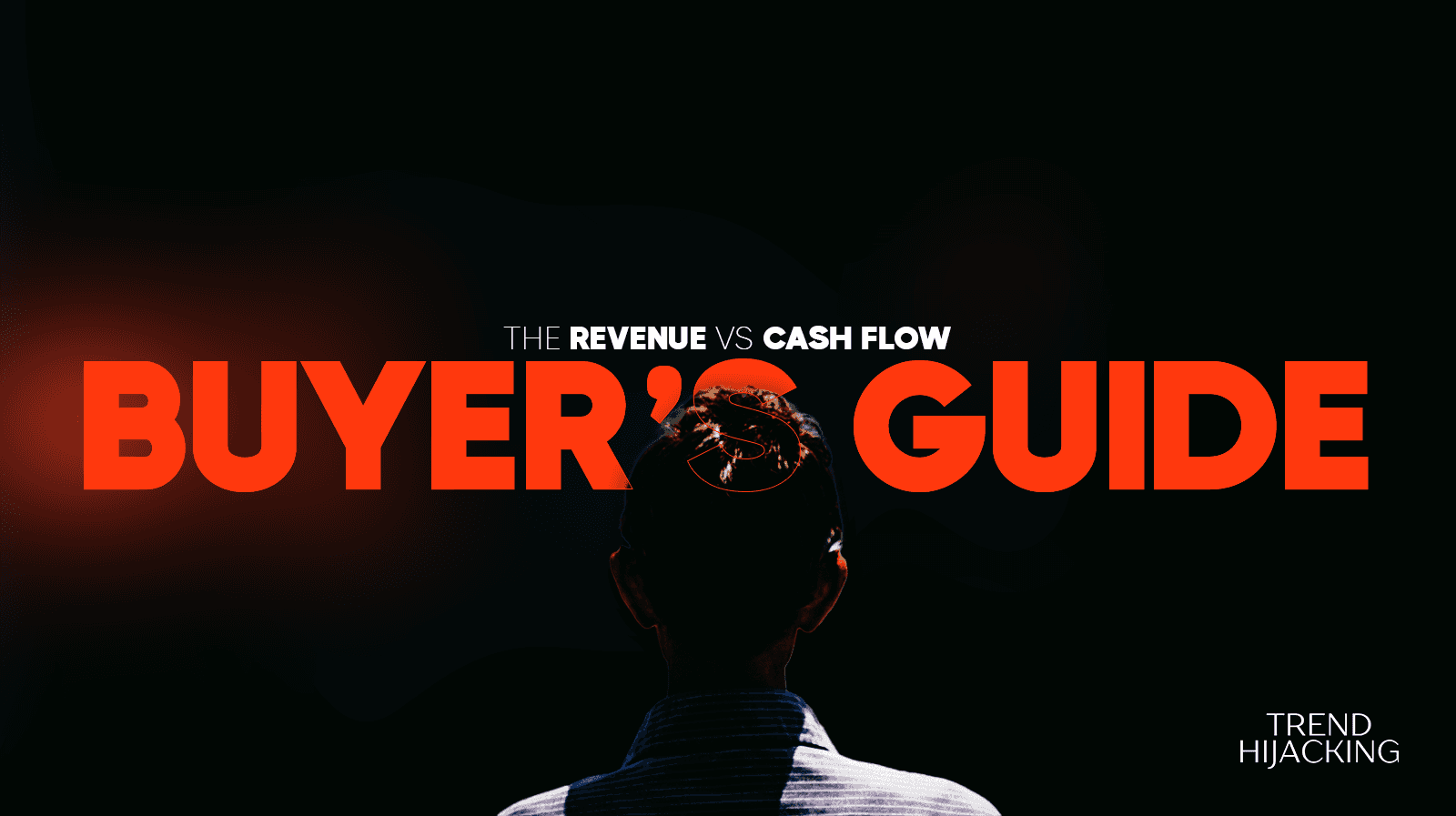
Best Legal Advice For Buying An E-commerce Business (2026 Guide)
Buying an e-commerce business sounds exciting;
You imagine the feeling of skipping the hard startup phase and stepping into something that’s already generating revenue and has a ready audience.
BUT… buying a business—especially an online one—isn’t as simple as transferring a password.
There are RISKS.
If you don’t pay attention to the legal side, you could end up buying someone else’s problem.
Or worse, something that isn’t theirs to sell in the first place.
This article walks you through the best legal advice for buying an e-commerce business.
We’ll keep it plain and simple, so you don’t need to be a lawyer to understand this.
Just make sure you understand the details because the legal work you do before buying can make or break the deal.
Understand What You're Really Buying

First things first: You should always start the process by figuring out exactly what’s for sale.
Is it the entire business entity (like an LLC or corporation), or just its assets?
Most deals for small e-commerce companies are simply asset purchases.
This means you're buying things like the website, customer list, supplier contacts, and brand—but not the seller’s legal entity, unpaid taxes, or any debts they owe.
This difference matters a lot.
If you buy the company itself, you may also take on its legal problems, even the ones you don’t know about yet.
As the American Bar Association explains, most small business buyers avoid this risk by sticking to asset deals. It’s safer and cleaner. (Source).
We Help You Buy / Build, Manage and Scale E-commerce Brands for an EXIT
E-commerce Simplified for Busy Individuals – We handle the buying, building, and scaling, so you can focus on what matters.
Growth-Focused Strategies – From sourcing to marketing, we drive growth and prepare you for a profitable exit.
Expertly Managed Exits – We build a high-value brand designed for a Lucrative exit.
Get A Solid Purchase Agreement

The purchase agreement refers to the legal contract that explains who is selling what, for how much, and under what conditions.
This is not something you should copy from the internet or write yourself. A good lawyer will help you write a clear, complete agreement.
The document should include the exact price, payment terms, and what happens if either party backs out.
It should also list all the assets you're buying:
Domain name
Customer database
Supplier contracts
Social media accounts
Trademarks, inventory, etc.
A good agreement should also make it clear what you're not taking.
If the seller owes someone money, you don't want them coming after you.
A solid agreement makes sure that doesn't happen.
Check Intellectual Property Rights

Did you know that most of an e-commerce business's value lies in its brand and digital assets?
Yep! This includes its name, logo, website content, product designs, and even email lists.
These are all types of intellectual property (IP).
According to the U.S. Patent and Trademark Office, IP is one of the most common reasons for disputes in small business sales.
Therefore, before you close the deal, make sure the seller owns everything they claim to.
Ask to see trademarks, copyrights, and any license agreements.
For example, if a freelancer made the business logo, was it a “work for hire”? If not, the designer might still own the rights.
If the product photos came from a third party, are there licenses for commercial use?
You also want a written transfer of rights in your agreement. Just because someone gives you access doesn’t mean you own it.
The law requires a clear assignment of IP for you to have legal control.
Do A Thorough Legal and Financial Review (Due Diligence)

As we have always said, you should always do your homework for any online business you wish to buy.
You (and your lawyer) need to dig into the business and make sure everything checks out.
Review its sales history, profit margins, refund rates, customer reviews, and supplier relationships.
On the legal side, ask for past tax filings, contracts with vendors, employment agreements, and any ongoing legal issues.
If the business sells regulated products—like health supplements—you’ll want to be extra careful.
You’d be surprised at the high number of small business deals that fall apart during due diligence.
This is usually because the buyer finds something the seller didn’t share upfront. So don’t skip this step.
Make Sure You Can Keep Using the Platform

If the online store you’re acquiring runs on Shopify, Amazon, or any other third-party platform, you need to know the rules.
Most e-commerce platforms don’t let accounts change hands freely.
For example, Shopify allows store ownership transfers, but Amazon has strict rules about seller accounts.
You may need to create a new account and have the assets transferred.
If the seller broke any platform rules in the past, their account might also be at risk of suspension. That risk could pass to you if you try to keep using the same account.
So read the platform’s terms of service carefully. Ask for a clean history of the account. And be ready to make a clean start if needed.
We Help You Buy / Build, Manage and Scale E-commerce Brands for an EXIT
E-commerce Simplified for Busy Individuals – We handle the buying, building, and scaling, so you can focus on what matters.
Growth-Focused Strategies – From sourcing to marketing, we drive growth and prepare you for a profitable exit.
Expertly Managed Exits – We build a high-value brand designed for a Lucrative exit.
Protect Yourself After the Sale

Even if everything looks great now, you should still put measures in place to avoid surprises later.
That’s why your agreement should include “representations and warranties.”
These are simply legal promises from the seller. They might promise that they own everything they're selling, that the financial records are true, and that the business has no hidden problems.
You also want an “indemnity clause.” This protects you if someone sues you over something the seller did before you bought the business.
For example, if they copied a competitor’s product, and that company sues after the sale, indemnity lets you pass that legal cost back to the seller.
Lawyers often say these parts of the contract are more important than the price. They protect your money, your time, and your reputation.
Hire the Right Legal Help

Hiring a business lawyer with experience in e-commerce acquisitions can prove quite helpful.
Don’t just use a general lawyer or your cousin who does real estate.
Instead, you want someone who knows digital assets, online platforms, and small business contracts.
Yes, this will cost you money. But skipping legal help could end up costing you much more.
Think of your lawyer as insurance. They won’t make the business succeed, but they’ll help you avoid big legal mistakes while buying it.
Final Thoughts
Buying an e-commerce business can be a smart move—if you do it the right way. Make sure you know exactly what you're buying. Use a strong contract. Check that the seller owns what they’re selling. Review the financial and legal history closely. Understand the rules of the platforms involved. And always get help from a qualified business lawyer.
Taking care of the legal side may not be exciting, but it’s where deals succeed or fail. With these steps, you can protect your money and set yourself up for long-term success.
We can help you find the best e-commerce business for sale. Through our Acquisition Partnership, we help you spot the best deals and handle thorough due diligence on your behalf. After the acquisition, we can help you manage it and scale it up to 2-4x, so you can exit at a maximum profit should you decide to sell it. Want more details on how this program works? Simply Click This Link to get started.
A Done-For-You E-commerce Business
Discover how we Build, Launch, and Scale a 6-figure/month Business for You
Learn more
The 6-Step Blueprint to E-Commerce Acquisition
See how we Acquire, Convert, and Scale with Real Case Studies to Prove It.



















